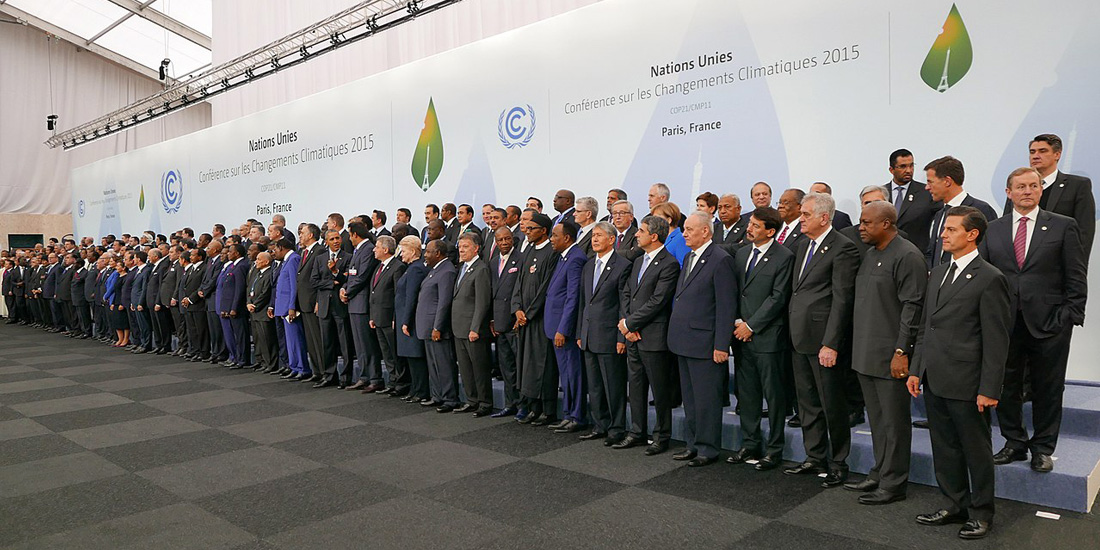There can’t be many sceptics remaining when it comes to acceptance of global warming and the threat it poses to humanity. The alarming frequency of extreme weather events like floods and wildfires have given us a collective wake-up call, and there has been a welcome and noticeable shift from complacency to urgency and action.
The 26th annual summit of the Conference of the Parties – better known as COP26 or the Climate Change Conference – got underway on 31st October this year. Taking place in Glasgow and hosted by the UK, the city welcomed senior leaders and delegates from around the world. Since then, all eyes have been on the events, discussions and negotiations that are intended to, literally, save the planet.
There has been a tentative positive response so far as we see the rhetoric slowly shift from: “last, best hope” and “failure is a death sentence”, to something more hopeful. As more agreements are made there appears to be a quiet optimism and strong commitment to change emerging.
The purpose of the two-week COP26 summit (31st October to 12th November) is to bring together representatives from countries around the world to increase momentum in achieving the commitments made under the Paris Agreement in 2015 at COP21. Attendees are those from countries who signed the 1994 treaty: United Nations Framework Convention on Climate Change (UNFCCC) and they number in their thousands. The summit has attracted more than 100 leaders and around 25,000 representatives from business and government, including negotiators and climate change experts and activists.

This 2021 event is to underpin the promises made in 2015 at COP21, which were hailed as landmarks in the mitigation and reversal of global warming. In a world where human beings so rarely agree, there was a momentous achievement at the 2015 summit in Paris when all countries agreed to act jointly and cooperatively to limit global warming to ‘well below 2°C’ with the aim of actually achieving 1.5°C. The agreement is known as the Paris Agreement.
A key aspect of the agreement was the commitment made by all countries to divulge the plans they have to reduce their carbon emissions. COP26 is the event where all 200 countries will lay out their strategies for achieving decarbonisation by 2050.
Areas under discussion to achieve these goals include coal, deforestation, electric vehicles, protection of vital ecosystems, as well as the finance needed to reach stringent targets and how countries, globally, must work together to tackle the climate crisis.
The UK government announced its own targets for achieving decarbonisation just days before the summit started when it revealed its net-zero strategy. The strategy tackles global warming on a domestic front and while each country at the conference has pledged to adhere to its own net-zero agenda, there has also been collective agreement for action across specific areas of concern.
The first week of the summit saw some significant agreements made with more anticipated in week two. Deforestation was the first major agreement to be made when over 100 world leaders committed to ending it by 2030. By the same year, 100 leaders agreed to cut methane emissions by 30%. Coal has been an emotive subject and as the biggest contributor to global warming has come under debate, but great progress was made at the summit when countries numbering around 23 pledged to phase out coal power. And one of the biggest headlines came with the revelation that 450 organisations which control 40% of global assets would release $130 trillion of private capital to fund clean technology.
As experts working within the energy and sustainability sector, the team at Inteb is closely following the discussions, events and agreements made at COP26. As announcements are made we’ll be sharing our thoughts in a series of blogs about what has been agreed, globally, who it will affect and how the actions required to achieve the promises will be carried out.
On a domestic front we’ll also be looking at the UK government’s net-zero strategy and examining how more stringent and ambitious targets, measures and policies are likely to impact businesses, and particularly our clients across the UK.
If you would like to follow our views on the commitments made to climate change, follow us on LinkedIn to receive our blogs.
Let’s get the conversation started – call us now on 0151 601 3476